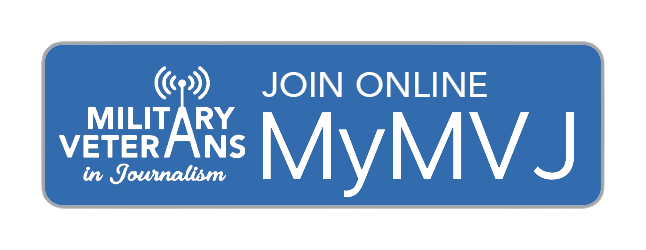
Over the years, I’ve been a professor of organizational behavior, HR, and leadership and have worked for (and led) various organizations. I hope I serve with integrity and leave things a little better than I found them, as I am sure you do.
In each of the many roles I’ve played, I have had the great delight of having members of the military walk the path alongside me. They’ve come in all shapes and sizes and have been my colleagues, fellow students, students in my classrooms, and friends. I currently live in the Hampton Roads area of Virginia, which houses many active and retired military personnel. The conversations experienced during walks or overheard in even the limited social settings we enjoy today are humbling and comforting.
Two threads connect these marvelous and committed individuals: integrity and critical thinking, which are two skills I see as essential to strong leaders and the extraordinary journalist. I do not suggest that you pass up the opportunities presented by MVJ to hone your writing, interviewing, and other more technical trade skills. However, I want to emphasize that you have trained, lived with, and honed these two essential skills in military service.
When I was a business school faculty member, I found that students did not engage with critical issues facing our country, such as the 2019 impeachment hearings. In response, I developed a classroom-related exercise that required students to keep a six-week journal of news related to current events. The Harvey Weinstein case and the mentioned hearings were only two of many events that provided a breadth of content for them to use. What would you guess the overarching frustration with the project was? It was not the “excessive” amount of time or writing involved; instead, it was summed up succinctly by one student who asked, “How do we tell who is lying and who is not?”

Kelly Kennedy, The War Horse’s managing editor and an Army veteran, embedded with the 26th Infantry Regiment in 2007.
We need the integrity and factuality of former military journalists – never has the phrase “now more than ever” been more applicable. In the few months since I began to ponder a future blog posting, the world has changed. It is ever-changing, of course, as we wait to see how the future plays out. We depend on fact-based and thoughtful reporting to guide us.
The wisdom and experience gained in military service becomes more poignant and apparent during times of war. We hang onto every word of advice that Retired General Barry McCaffery can offer because we know he has lived through this. Yet these skills are also palpable in reporting on other issues from former military journalists, such as Kelly Ramos and Kelly Kennedy. While military experience is not a necessary prerequisite for the profession, it brings to anyone who has engaged with veterans a sense of trust and comfort.
The tendrils of power have reached deep and caused divisions among us. These divisions led to explosive breakdowns in communication that most of us have never witnessed before. One faction tends to believe that the other does not want to listen or is propagating misinformation. It is interesting, however, that disinformation research has found people are indeed looking for the truth. Researcher William Dance says, “People engaging with false news stories are not disinterested in truth, but are hyper-concerned with it — especially the idea that it’s being hidden.” The Canadian-British journalist Cory Doctorow states, “[We are] living through a crisis about how we know whether something is true.”
Trust and integrity lead to public confidence in information. Gallup polls have shown that confidence in the press has plummeted over the last fifty years since Watergate. It’s challenging, but not insurmountable. It takes time to develop trustworthiness, but being trustworthy is easy. Tell the truth. Integrity breeds the desire for it. Finding the truth is the challenge, and it takes no small amount of critical thinking to do this.

Retired USAF Col. Nicole Malachowski is a motivational speaker dedicated to mentoring the next generation of Americans.
As Retired Army Sgt. Major Glen Morrell says: “Soldiers must possess integrity in order to build trust and confidence in themselves, our leadership, and the American public. Among the things I’ve learned during my career is that you must be honest with everyone about everything.” But what does that integrity look like? In my experience, it shines through when military veterans work in teams. Teamwork development, the deliberation and conceptualization that goes with focusing on the mission, and knowing the importance of ‘having each other’s back’ – these skills are learned and honed in service. At the end of the day, humans are social animals. We’d like to think we look out for each other. We’ve seen veterans do all these things and trust that “having our back” translates into truthful journalism.
Col. Nicole Malachowski, USAF (Ret.) is a combat veteran, the first female Thunderbird pilot, and a personal source of inspiration for me. She is a gifted inspirational speaker and reminds audiences that, “The power of your words to make or break somebody else’s dream [is] infinitely powerful.” Integrity and critical thought support that power. No multiple-choice tests or essays will measure the value these elements have brought to your character, nor how crucial they are for accurate and fact-based reporting.
You’ve got this! And you’ve got Military Veterans in Journalism supporting your work and giving you unique opportunities to thrive.

Dr. Melinda Weisberg is a (semi)-retired Professor of Management at Marist College in Poughkeepsie NY and well…a lot of other stuff over the past 35+ years. She currently resides in Williamsburg, VA with the love of her life and their three active Labrador Retrievers. She can be reached at [email protected].



